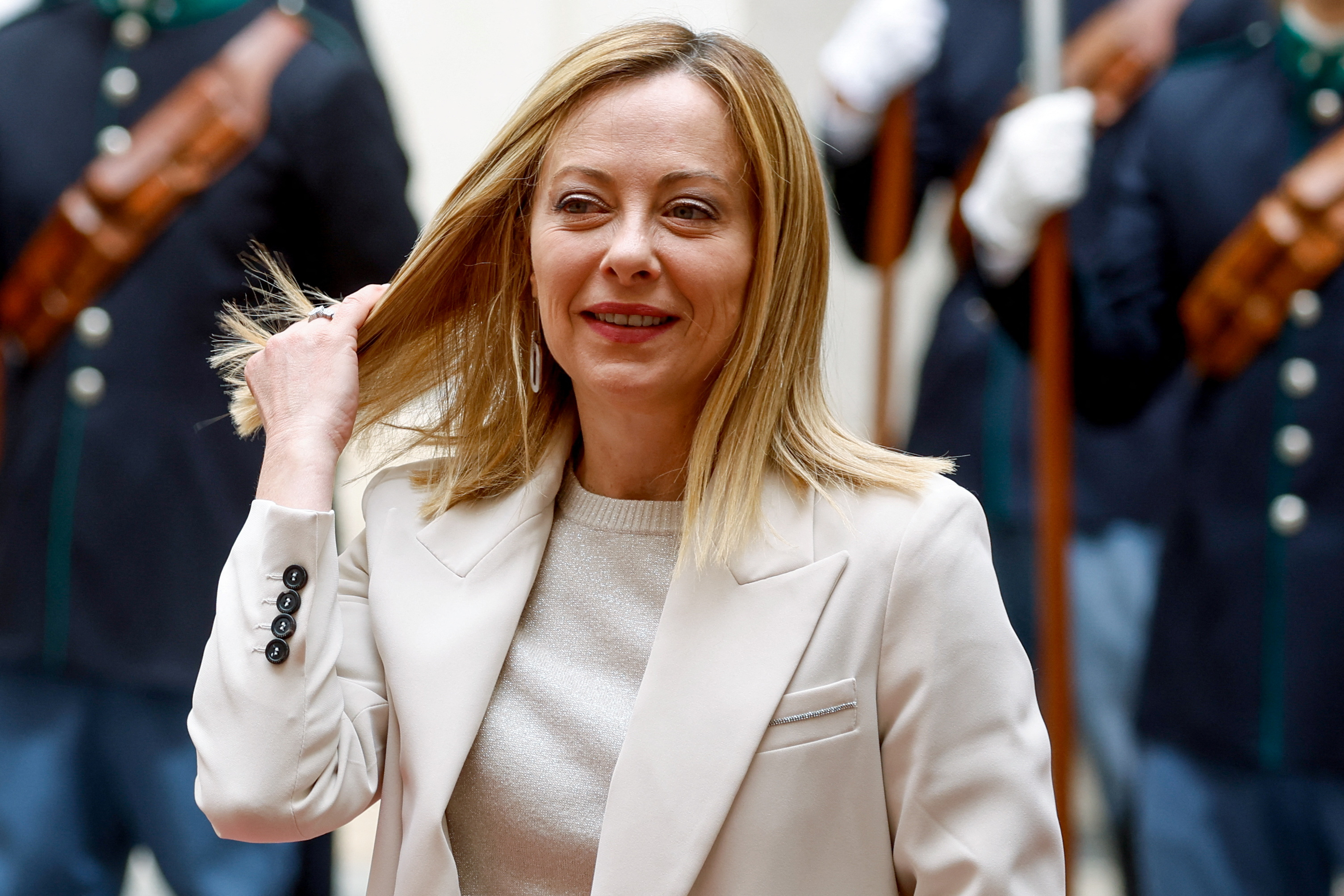When Italian Prime Minister Giorgia Meloni took power in 2022, far-right parties across Europe hailed her victory, expecting the fiery new leader in Rome to pursue a nationalist agenda and battle the Brussels bureaucracy.
But rather than clash with the European Union elites, Meloni surprised friend and foe alike by working closely with them, presenting herself as a bridge between the mainstream centre-right and her own arch-conservative camp, which was previously shunned.
Her influence might grow in the wake of next month’s EU elections, if, as she has hinted, she backs centre-right Commission President Ursula von der Leyen for a second term.
That would give her leverage over the new EU executive, boost her chances of winning an important portfolio for Italy in the next commission and strengthen her role as a power broker.
“Meloni is the best person to act as a bridge between the different factions of the right and centre-right in Europe, where she is a respected and recognised leader,” said Carlo Fidanza, the head of Meloni’s Brothers of Italy party in Europe.
While her ruling coalition in Rome unites various strands of Italy’s multifaceted right-wing, Meloni’s chance of replicating that within the next EU parliament looks impossible.
Von der Leyen and her allies have already said they would not work with more extreme elements, including Meloni’s Italian ally, Matteo Salvini, who heads the anti-immigrant League party, and Marine Le Pen’s National Rally in France.
The distaste is mutual, with these parties also rebuffing von der Leyen.
However, the Commission president has expressed no qualms about Meloni, brushing aside concerns in some EU capitals over the Brothers of Italy party, which has neo-fascist roots.
“I have been working very well with Giorgia Meloni,” von der Leyen told a presidential debate in Brussels on May 23, adding that Meloni was “clearly pro-European”.
SWIFT RESULTS
Meloni’s first foreign trip as prime minister in 2022 was to Brussels to meet the EU leadership. She made a positive impression. “Boy oh boy was she on top of her brief,” said an EU official present at one of the meetings.
In the following months, Meloni engaged with the Commission, proving instrumental in securing a deal on the reform of the EU’s asylum rules after nearly 10 years of failed attempts.
She also travelled with von der Leyen on three occasions to North Africa, signing deals with Egypt and Tunisia that included provisions to stem migrant departures – accords that have helped see a 58% fall in new arrivals to Italy so far this year.
Crucially, Meloni has also offered constant support for Ukraine and unabated criticism of Russia, marking her out from the likes of Le Pen and Salvini, who traditionally have had close ties with Russian President Vladimir Putin.
“Meloni has been clever,” said Daniele Albertazzi, politics professor at Britain’s Surrey University. “What she’s done is to say: ‘Look, let’s be mainstream and responsible on the international stage because I need these guys’.”
One senior EU leader, speaking strictly off the record, said Meloni remained a “radical right-winger” but had adopted a pro-European attitude because Italy was heavily indebted and could not antagonise nations that provided Rome with financial cover.
Whatever her motivations, Meloni has proved invaluable in recent summits, helping to persuade the often recalcitrant Hungarian nationalist leader, Viktor Orban, to let through a funding package for Ukraine and to back the EU migration pact.
One EU official, who declined to be named, said the Commission largely communicated with the Hungarian leader via Meloni, earning her the nickname “the Orban whisperer”.
DIVISIONS ABIDE
Europe’s far-right and nationalist parties often share similar policy platforms, but are divided into two distinct blocs within the EU parliament.
Meloni is head of the European Conservatives and Reformists (ECR) group, which includes Poland’s Law and Justice (PiS) party. Salvini and Le Pen are in the Identity and Democracy (ID) bloc, while Orban’s Fidesz party is homeless for now.
Von der Leyen comes from the centre-right European People’s Party (EPP) – the largest single EU political grouping.
Meloni ruled out supporting von der Leyen in 2019, but has not been drawn this time around. Party officials told Reuters that Italy might support her reappointment in June as part of a deal that included a top job for Italy in the new Commission.
Although Meloni is the leading force in the ECR, she would be unlikely to bring the whole group into line, underscoring the intersecting rivalries that criss-cross European politics.
PiS lawmakers, for example, would almost certainly refuse to back von der Leyen because their domestic foe, Polish Prime Minister Donald Tusk, is a driving force in von der Leyen’s EPP.
“Von der Leyen and Donald Tusk are politicians from a bygone era who should have no more influence on European politics,” PiS European lawmaker Zdzisław Krasnodębski told Reuters.
Meloni has also ruled out merging her ECR group with ID, which recently ditched its most radical partner, the Alternative for Germany (AfD) party, hoping instead that her bloc will grow at the ballot box to give her more leverage in Brussels.
“Having a more significant parliamentary group would allow Meloni to be at the centre between ID and the EPP. For me, that is her goal,” said Arturo Varvelli, director of the European Council on Foreign Relations in Rome.






Click here to change your cookie preferences